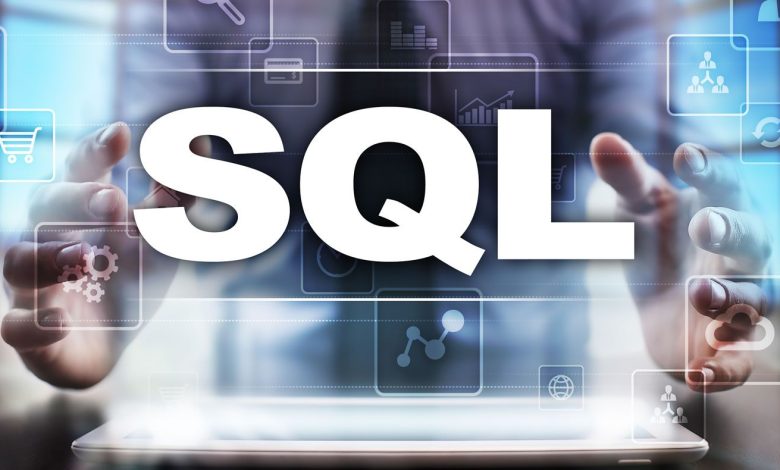Why Should Python Developers Learn SQL?

In today’s fast-paced technological landscape, Python has emerged as one of the most popular programming languages due to its simplicity, versatility, and extensive range of libraries. Python developers excel in various domains, including web development, data analysis, machine learning, and automation.
However, one skill that can significantly enhance a Python developer’s capabilities is learning SQL (Structured Query Language). This blog will explore why Python developers should consider adding SQL to their skillset and how it can broaden their career prospects.
Seamless Integration
Python and SQL complement each other exceptionally well. While Python provides a flexible and powerful programming language, SQL offers a specialized language for interacting with relational databases.
By combining these two languages, developers can seamlessly work with databases and easily extract, manipulate, and analyze data. Also, by seeking help for Python job support, professionals can make the most of the opportunity.
Efficient Data Manipulation
SQL is specifically designed for managing structured data, making it a robust tool for working with databases. By learning SQL, Python developers can leverage its querying capabilities to retrieve specific data subsets, filter, sort, and aggregate data, and perform complex data operations efficiently. This enhances their ability to handle large datasets and extract meaningful insights.
Data Analysis and Reporting
Python developers often encounter scenarios where they need to analyze and present data. SQL can be an invaluable asset in such cases. Python developers who are proficient in SQL can use their knowledge to retrieve relevant data from databases, perform advanced analytics, and generate custom reports. This combination of Python and SQL empowers developers to gain deep insights into data, identify patterns, and make data-driven decisions.
Collaboration with Data Teams
In many organizations, data teams or data analysts are responsible for managing and analyzing large datasets. Python developers can bridge the gap between development and data teams by learning SQL.
They can effectively communicate with data professionals, understand their requirements, and assist in implementing complex data operations. This collaboration fosters teamwork and leads to more efficient and accurate data analysis.
Enhanced Job Opportunities
Adding SQL to their skillset opens up a plethora of job opportunities for Python developers. Many industries, such as finance, healthcare, e-commerce, and marketing, heavily rely on databases and SQL for data management.
By combining Python and SQL, developers can position themselves as highly sought-after professionals who can handle programming and database-related tasks. This can lead to roles such as data engineer, data analyst, or full-stack developer, significantly broadening career prospects.
Automation and Web Development
Python’s strength lies in automation and web development. Python developers can streamline their automation tasks and web applications by integrating SQL into their workflow. They can create dynamic web pages interacting with databases, perform real-time data updates, and enable seamless data storage and retrieval. SQL empowers developers to build efficient and scalable applications that handle data effectively.
Database Management
SQL is the de facto language for managing databases, and learning it can greatly enhance a Python developer’s ability to work with databases effectively. By understanding SQL, developers can create, modify, and manage databases, define tables, set up relationships, and ensure data integrity. This skill becomes invaluable when working on database design, migration, or optimization projects.
Advanced-Data Filtering and Joins
SQL provides powerful capabilities for filtering and joining data from multiple tables. Python developers proficient in SQL can leverage these advanced querying techniques to extract complex data subsets based on specific criteria.
They can join tables to retrieve related data and perform calculations across different datasets. These skills enable developers to handle intricate data scenarios and derive meaningful insights from interconnected data.
Data Validation and Integrity
In any data-driven application, data validation and integrity are crucial aspects. By learning SQL, Python developers can enforce data constraints, define primary and foreign key relationships, and ensure data consistency.
They can implement validation rules, handle data errors, and maintain the integrity of the database. This expertise is particularly valuable in scenarios where data accuracy and reliability are critical.
Optimized Performance
Efficiently accessing and retrieving data from databases is essential for application performance. SQL provides various optimization techniques to enhance database performance, such as indexing, query optimization, and caching. Python developers who understand SQL can optimize their queries and minimize the load on databases, resulting in faster data retrieval and improved overall application performance.
Data Security
With the increasing emphasis on data security and privacy, knowledge of SQL can help Python developers implement robust security measures. SQL provides mechanisms for user authentication, role-based access control, and data encryption.
Python developers proficient in SQL can apply these security measures to safeguard sensitive data, protect against unauthorized access, and ensure compliance with data protection regulations.
Seamless Integration with ORMs
Python developers often use Object-Relational Mapping (ORM) frameworks like Django ORM or SQLAlchemy to interact with databases. While ORMs abstract away the underlying SQL, having a solid understanding of SQL allows developers to optimize queries, understand performance implications, and troubleshoot complex scenarios. By combining SQL with ORMs, Python developers can harness the full potential of these frameworks while maintaining control over database interactions.
Conclusion
Expanding their skillset to include SQL empowers Python developers to become well-rounded professionals capable of handling various data-related tasks. From efficient data manipulation and advanced analytics to collaboration with data teams and database management, SQL complements Python’s capabilities and opens up numerous industry opportunities.
Python developers can significantly enhance their career prospects and excel in the data-driven world by investing time and effort in learning SQL. Not just Python and SQL, but seeking help for other programming languages like Selenium Job Support will also make it effective in the long run.




